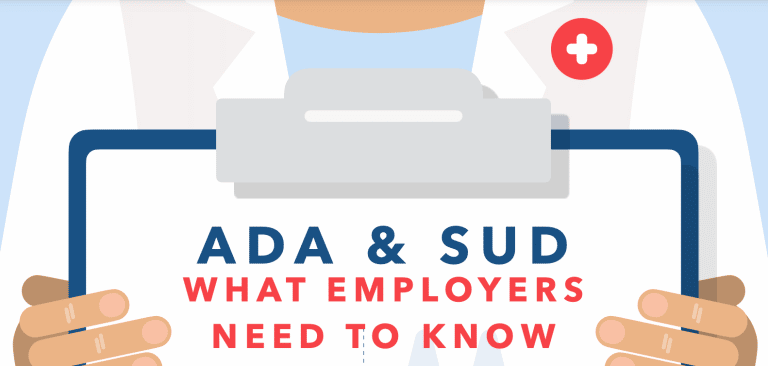New guidance from the United States Justice Department aims to help employers comply with laws protecting employees in treatment for, or recovery from, Opioid Use Disorder (OUD).
The DOJ’s missive comes as the United States’ deadly opioid epidemic continues to ravage the nation. According to the Centers for Disease Control, the number of drug overdose deaths increased nearly 5 percent from 2018 to 2019 and has quadrupled since 1999. More than 70 percent of the 70,630 drug overdose deaths reported in 2019 involved an opioid.
The DOJ’s guidance explains how the federal Americans with Disabilities Act (ADA) protects people with OUD and seeks to remove discriminatory barriers to recovery for individuals who have completed, or are participating in, treatment for the disorder. OUD treatments under licensed medical supervision often include frequent monitoring and carefully titrated consumption of less addictive opioids, such as buprenorphine and methadone — medications that, if not used as prescribed, can cause problems in the workplace.
“The opioid epidemic continues to pose an extraordinary challenge to communities across our country, and the COVID-19 pandemic has exacerbated this crisis,” Assistant Attorney General Kristen Clarke of the DOJ’s Civil Rights Division said in a statement. “People who have stopped illegally using drugs should not face discrimination when accessing evidence-based treatment or continuing on their path to recovery.”
In recent months, the DOJ’s Civil Rights Division has tackled several cases to help ensure people in treatment and recovery participate successfully in the workforce. Among them were three cases in March alone:
- The department issued a letter finding that the Indiana State Board of nursing violated the ADA by denying a nurse the chance to participate in a substance use disorder rehabilitation program because she takes medication for OUD. The program is required for the woman to reinstate her nursing license.
- The DOJ struck a settlement with a Massachusetts trial court to resolve allegations that its drug court violated the ADA by discriminating against individuals with OUD.
- The DOJ entered into another settlement agreement with a Colorado-based employment, residential and social services program that it said denied admission to a woman because she takes medication for OUD.
The DOJ emphasized that the ADA does not protect individuals “engaged in the current use of illicit drugs if an entity takes action against them because of that illegal drug use.” The department further defined “current use of drugs” to mean “illegal use of drugs that occurred recently enough to justify a reasonable belief that a person’s drug use is current or that continuing use is a real and ongoing problem. Illegal use, however, does not include taking a medication, including an opioid or medication used to treat OUD, under the supervision of a licensed healthcare professional.”
National Drug Screening’s workplace drug testing programs and services are designed to be compliant with state and federal law and to reduce an employer’s exposure to liability. Learn more about how we can help your company create a comprehensive workplace drug testing program.








